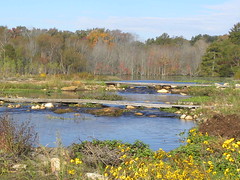Governor Larry Hogan Announces $23.25 Million in Grants to Reduce Nonpoint Source Water Pollution
Chesapeake and Atlantic Coastal Bays Trust Fund Sponsors 21 Projects
Maryland Governor Larry Hogan today announced that the Department of Natural Resources has awarded grant funding, totaling $23.25 million, to reduce nonpoint source pollution through the Chesapeake and Atlantic Coastal Bays Trust Fund. The Trust Fund directs funding to the most cost-effective and efficient projects in the state, with the goal of gaining the greatest reduction of pollution for the investment being made.
“The Chesapeake Bay is our greatest and most important natural asset, and a national treasure that needs our continued attention and focus,” said Governor Hogan. “That is why we honored our commitment to bay restoration by fully funding the Chesapeake and Atlantic Coastal Bays Trust Fund for the first time in state history. Trust Fund projects enhance our local streams and rivers, and bring us a step closer to a healthier and more productive Chesapeake Bay, for this and future generations.”
Projects from Anne Arundel to Wicomico County will receive funding for projects such as stream and wetland restoration, innovative stormwater management, enhancing the urban tree canopy and more. In all, the state received nearly $72 million in requests for the $23.25 million available in Fiscal Year 2017.
“The Trust Fund is one of the most innovative pollution reduction programs in the nation,” Natural Resources Secretary Mark Belton said. “It engages local communities and leverages third-party organizations and partners into real, practical projects and solutions. Through this program, the state is effectively lowering the costs to reduce pollution in our waterways, a victory for the environment, taxpayers and the watershed.”
The Chesapeake and Atlantic Coastal Bays Trust Fund is guided by the Chesapeake Bay Cabinet and administered by the Maryland Department of Natural Resources. Since its creation in 2007, the Trust Fund has supported more than 2,000 projects, including the planting of 1,081 acres of riparian forest, as well as the restoration of 601 acres of wetlands, creating and supporting about 2,000 jobs.

